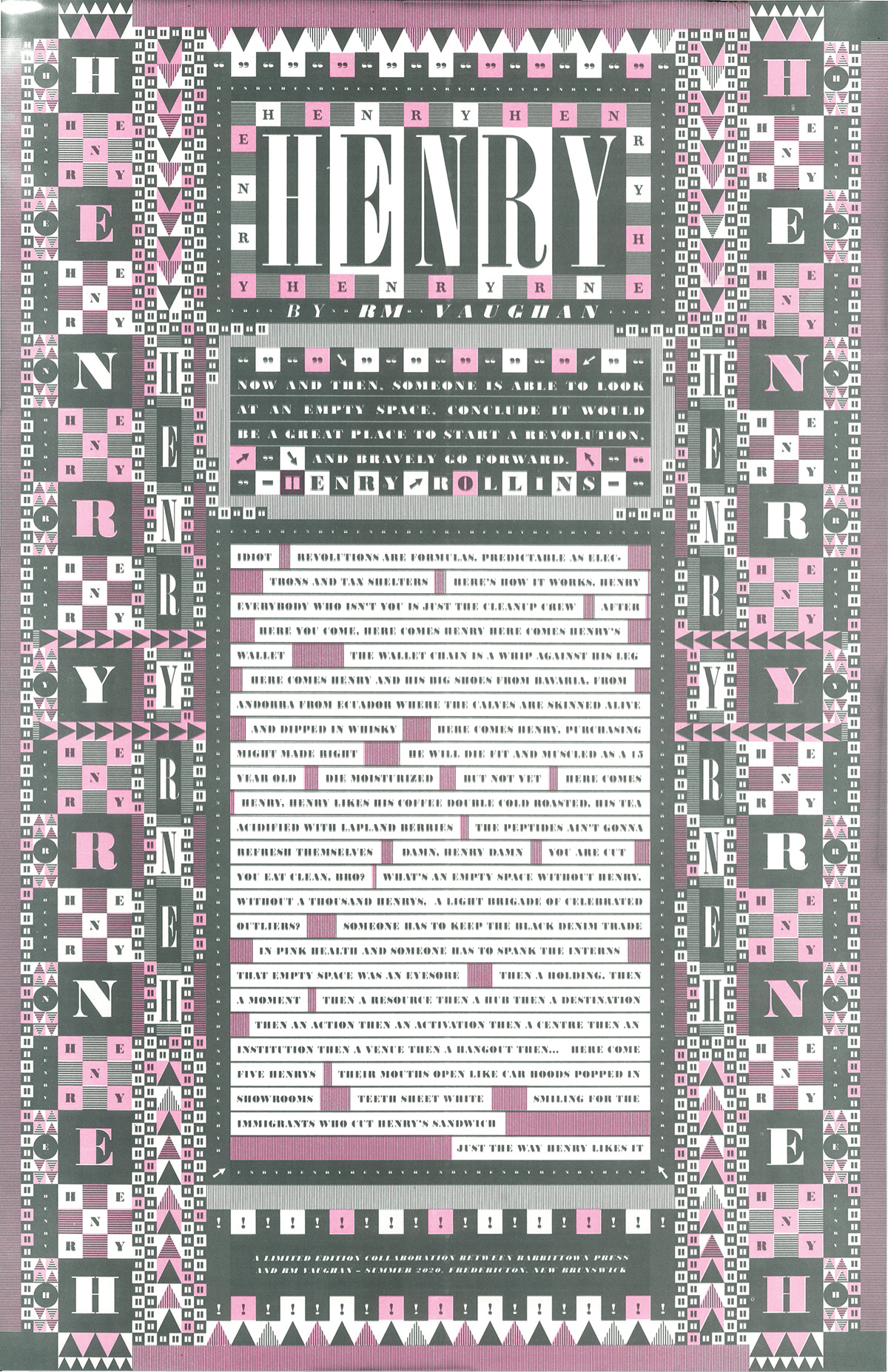
A few weeks before his death, in October, 2020, the poet and author R. M. Vaughan sent Taddle Creek the following note, via e-mail: “A few months ago I collaborated with Rabbittown Press (here in Fredericton) and made a poem-poster. It’s not a subtle work. It would look beautiful reproduced in TC. Yes it would.” Unfortunately, the magazine never had the opportunity to discuss reproducing Richard’s broadside with him, but is happy to be able to do so now, with Rabbittown’s co-operation.
Richard initially contacted Rabbittown Press about producing a chapbook for the University of New Brunswick’s English department, where he was serving as its writer-in-residence. “It never came to light because of funding, but he was still interested in working with me on something, and it came up later that he had this one poem that he would like to make into a broadsheet,” Scarlett McAllister, the co-owner of Rabbittown Press, told Taddle Creek. “And so he showed me the poem, he told me about the poem, and he basically gave me full creative decision-making, which is wonderful.”
“Henry,” a critique of the singer and actor Henry Rollins, employs seemingly random space between words, a trademark of Richard’s that lends itself well to the cut-and-paste feel of Scarlett’s design. “I could be wrong, but I think Richard at one point idolized and eventually rejected Henry Rollins in terms of having double standards, being a figure who was revered but was, at the same time, problematic,” Scarlett said. “The poem, I think, had a lot to do with the ego and Henry Rollins, so what I wanted to do was create this image where all of the space was filled with graphic representations of Henry Rollins. The pink comes from a request Richard had early on. He wanted to print it on pink paper, but it was expensive. I think it had something to do with creating abjection to what was Henry’s obviously black-and-white style. So the idea was to subvert Henry’s style. I’m really grateful for the interaction I had with Richard, because it produced something we were both really happy with.”